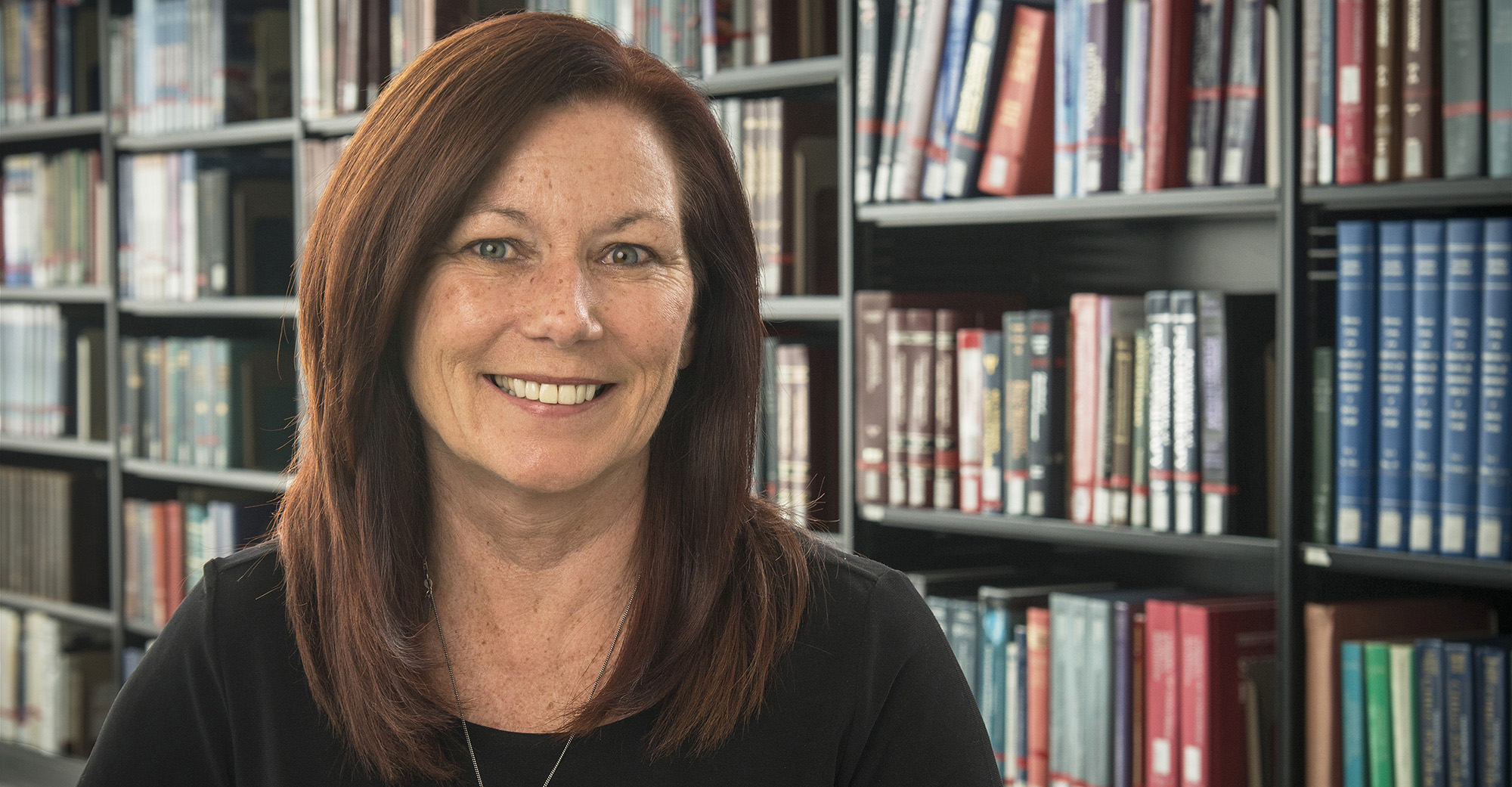
Deborah Gorman-Smith, Dean of the School of Social Service Administration and Emily Klein Gidwitz Professor. (Photography by Lloyd Degrane)
School of Social Service Administration dean Deborah Gorman-Smith on the school’s ambitious future vision.
From its start as one of the first schools of social work in the United States, the School of Social Service Administration has emphasized the need for science and research as foundational elements of social change. Our school also is guided by specific values dedicated to a more just and humane society. Every day I am reminded of this distinctive vision and history when I reflect on the work of our faculty, students, and alumni.
Guided by an interdisciplinary tradition, SSA’s faculty are conducting innovative and applied research addressing such challenging issues as poverty, violence, educational inequality, health disparities, homelessness, immigration, mass incarceration, and child welfare. Our cross-disciplinary approach uses a variety of research methods and also informs the rigorous training and mentoring of our students—the next generation of leaders who will use evidence and new ideas to create lasting and positive change.
What makes SSA’s approach most impactful is our commitment to community engagement and collaboration. Community engagement, based on trusted long-term partnerships, allows us to explore social problems with nuanced and comprehensive thinking. Locally and globally, our collaborations are uncovering new solutions and influencing policies and practices. Faculty are examining disparities inside and outside the criminal justice system—identifying interventions and innovations that improve the well-being of incarcerated women; evaluating the use of deferred prosecution programs, which can reduce the number of individuals entering the criminal justice system; and exploring ways to support the successful reentry of individuals after incarceration.
To address educational inequality, SSA focuses on education policies and practices, as well as the constellation of family, peer, and neighborhood experiences that children bring into the classroom. Collaborating with Chicago Public Schools has led to new interventions, strategies, and partnerships that have improved graduation rates, facilitated systemic change, and created a brighter pathway for young people aspiring to college. Based on this work, SSA’s Network for College Success recently received an $11.7 million grant from the Bill & Melinda Gates Foundation that will deepen the work with CPS high schools and grow our impact across the city.
Our partnerships with the city, county, and state continue to expand. Faculty and students are evaluating the new CityKey municipal ID program with the Office of the City Clerk, and working with the Chicago Fines, Fees, and Access Collaborative, a new committee reviewing the impact of fines, fees, and collections practices on low-income, minority residents.
For the first time, SSA is teaching College courses—courses focused on areas such as immigration policy, criminal justice, urban education, social welfare policy, work and family, and global mental health. Other campus collaborations have amplified opportunities for students. SSA’s Civic Treks with UChicago’s Institute of Politics investigate pressing social issues and provide opportunities to interact with elected officials and leaders from human service organizations. With the University of Chicago Booth School of Business, SSA students are developing social entrepreneurship skills—and fresh solutions—to social, economic, and environmental challenges, with the chance to compete for venture capital funding to put their ideas into action.
Beyond the city limits, our research in China, India, the United Kingdom, Latin America, and sub-Saharan Africa has shaped SSA’s newest certificate program in global social development practice. Energizing our collaboration with Peking University and The Hong Kong Polytechnic University is the Enduring Foundations project, which is responding to the challenges created by China’s rapid urbanization, especially for children and the elderly in rural villages and migrant workers living in cities.
SSA was built by visionary women who imagined a better world and reimagined the profession. Our founders knew that change would happen only if rigorous research guided practice and policy. Continuing this school’s great traditions is inspiring and daunting: that we will give voice to those who are unheard, enact lasting social reform, and make real impact in the lives of individuals, families, and communities. In a world confronting extreme and complex social problems, SSA’s work matters more than ever.
